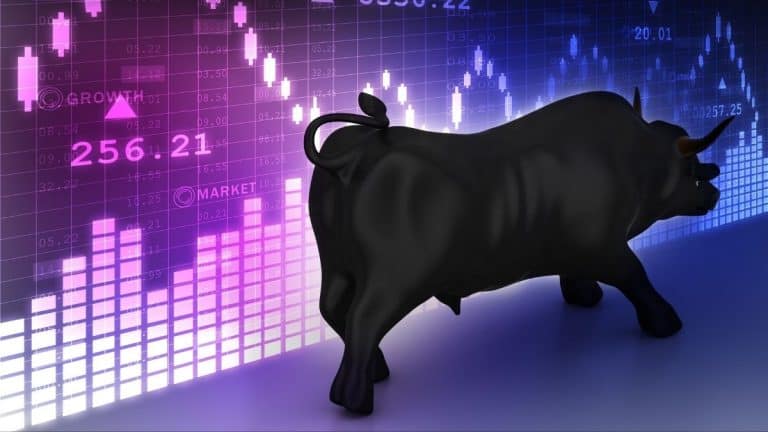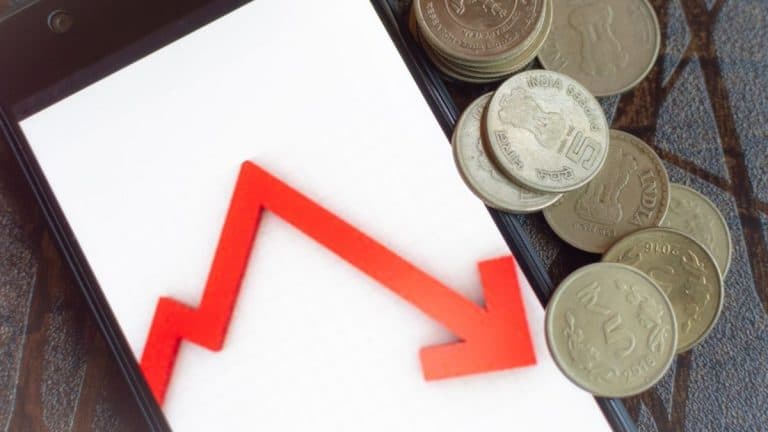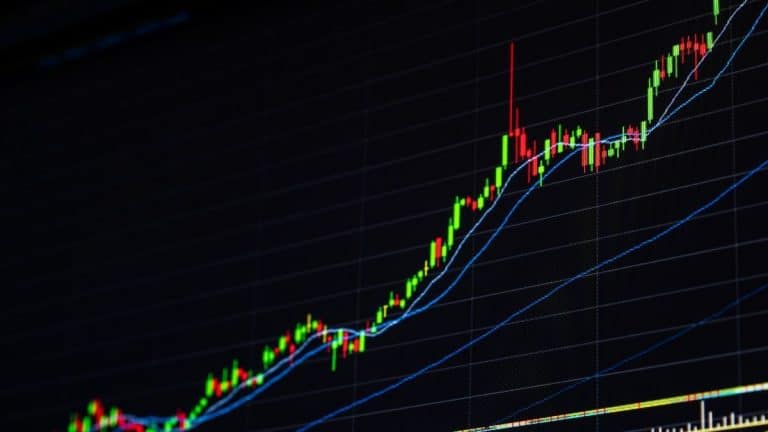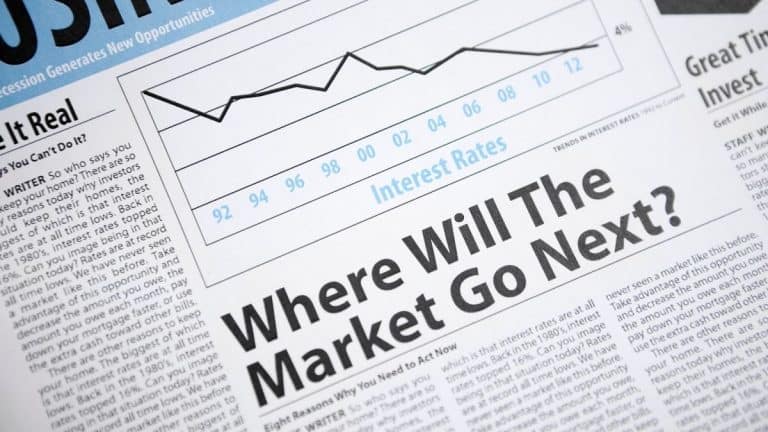When a new investor gets into the stock market, all the Wall Street slang can be quite intimidating. Not knowing the language can make it difficult to interpret newsletters or trends, leading to poor decisions. Before you decide to throw in the towel, read through our list of top stock market slang terms. Or, if you are familiar with the stock market and just need a refresher, use this as a quick reference guide to keep your head in the game. Here are some of the most common stock market slang terms in alphabetical order, so you can always find what you’re looking for.
Stock Market Slang: A to C

Ask
An ask is the lowest price someone is willing to accept for a stock or security.
Averaging Down
When you purchase more of a stock at a price lower than you previously paid for it, you say you are “averaging down.” This lowers the cost per stock you paid for that particular investment overall.
Bear Market
A bear market is a market where stock prices are trending down over time. This can be a good time to get your foot in the door.

Bull Market
A bull market is a market where stock prices are trending up. This can be a good time to reap some rewards.
Bear Trap
A bear trap is when a price breaks and creates sell signals, then rallies and cancels the sell signal. Short sellers will fall into the bear trap and get stuck on the wrong side of the trade.
Black Box
Black box is an automated trading program. It sends its users alerts about which securities are likely to move in real-time or daily. Black box is most helpful for pattern day traders.
Choppy Market
A choppy market is a market showing rapid price changes with no real trend. In this type of market, it is best to keep a steady pace and not make too many swing trades.
Wall Street Slang: D to I

Day Trading
Day trading is when all positions are cleared before the market closes for the day.
Front Month
The front month is the month closest to the expiry date of a futures or option contract
Hedge
A hedge is a strategy to limit losses by making a transaction that will buffer an existing position. Hedges can be very helpful in a volatile market.

Insider
An insider is a senior employee or director within a company, or other individuals who would have access to inside information regarding the company. Someone who owns more than 10% of the voting shares of a company would also be considered an insider.
Stock Market Slang J to P

Laggard
A laggard is a stock or industry that underperforms compared to the market overall. They are not necessarily bad investments, but should be carefully considered.
Leader
A leader is a stock or industry that outperforms the market overall. This does not always indicate that you should buy into this security, but they should definitely be on your radar.
Market Maker
Someone who is employed by a firm to maintain liquid assets in security markets is called a “market maker.” They do this by making offers up to a specified minimum guaranteed fill. In other words, their job is to keep a minimum level of cash investment in the market.
Overbought
A security is overbought when there are technical indicators that suggest the price is too high. This means the price is likely to fall.

Oversold
A security is oversold when there are technical indicators that suggest the price is too low. This means the price is likely to spike
Painting the Tape
Painting the tape is when a group of traders illegally move stock by trading it all at once. This artificially inflates or deflates the price of the security. Sometimes, a newsletter or email list can that influences day traders can trigger this.

Pattern Day Trader
Pattern Day Traders are traders who buy and sell a security more than four times per day over a period of five days, and traders who make at least 6% of their trades same-day.
Stock Market Slang: S to V
Selling Into Strength
Selling into strength is selling a security while its price is still rising, rather than waiting until it has reached its peak.

Shake Out
A shake out is when traders are scared out of a position, but the security moves in the right direction anyway.
Spread
The spread is the difference between the bid and ask of a security.
Swing Trading
Swing Trading is buying and selling positions with the intention of holding them for at least two days in order to seek quick gains.
Thin Market
A thin market happens when there are relatively few offers to buy and/or sell. This can refer to a single security or the market overall. Price fluctuations in a thin market are usually more dramatic than when the market is liquid. If just one stock is thin, it may be because there is little interest in it, or a limited supply of it.
Volatility
Volatility is a statistical measure of price changes over a period of time. Higher volatility indicates that prices are changing more than usual during that time period.

Volume
Volume is the number of shares or futures traded over a specified time period. Higher volume indicates that more traders than usual are buying or selling securities during that time period.
Now what?
Now that you understand these stock market slang terms, you can start building your strategy and become a wall street veteran in no time. If you think we missed an important term, sound off in the comments below. Whatever strategy you choose, remember to keep your head in the game and don’t fall into a bear trap!


 Tags:
Tags:










